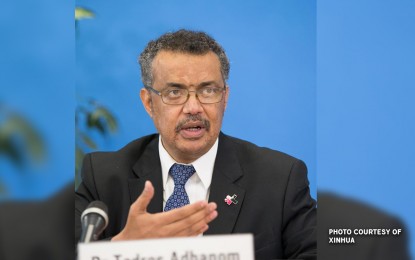
World Health Organization WHO Director General Tedros Adhanom Ghebreyesus (Photo courtesy by Xinhua)
MANILA -- World Health Organization (WHO) Director General Tedros Adhanom Ghebreyesus on Saturday called on governments, companies, and news organizations to strengthen their efforts in spreading facts about the coronavirus disease 2019 (Covid-19) to combat fake news about it worldwide.
"Work with us to sound the appropriate level of alarm, without fanning the flames of hysteria. Fake news spreads faster and more easily than this virus, and is just as dangerous, and that’s why we’re also working with search and media companies like Facebook, Google, Pinterest, Tencent, Twitter, TikTok, YouTube and others to counter the spread of rumors and misinformation," Ghebreyesus said in his speech at the Munich Security Conference in Munich, Germany.
He added the WHO is concerned about the levels of rumors and misinformation could be hampering the response to containing the spread of the disease globally.
"We’re concerned by the continued increase in the number of cases in China and the number of health workers who have been infected or have died. We’re concerned by the lack of urgency in funding the response from the international community," he said.
Citing the severe disruption in the market for personal protective equipment against Covid-19, Ghebreyesus said such scenario is putting front line health workers and caregivers at risk.
"We’re concerned about the potential havoc this virus could wreak in countries with weaker health systems," he added.
In his speech, Ghebreyesus also underscored the strategies undertaken by China and other countries to contain the Covid-19 outbreak despite the impossibility to predict its direction.
"Although PHEIC (Public Health Emergency of International Concern) is declared, with 99 percent of cases in China, this is still very much an emergency for that country because in the rest of the world we only have 505 cases and in China we have more than 66,000 cases," he said.
He said the global research communities work together on the identification and acceleration of the most urgent research needs for diagnostics, treatments and vaccines.
"We’re encouraged that we have been able to ship diagnostic kits, as well as supplies of masks, gloves, gowns and other personal protective equipment to some of the countries that need it most," Ghebreyesus said. (PNA)
